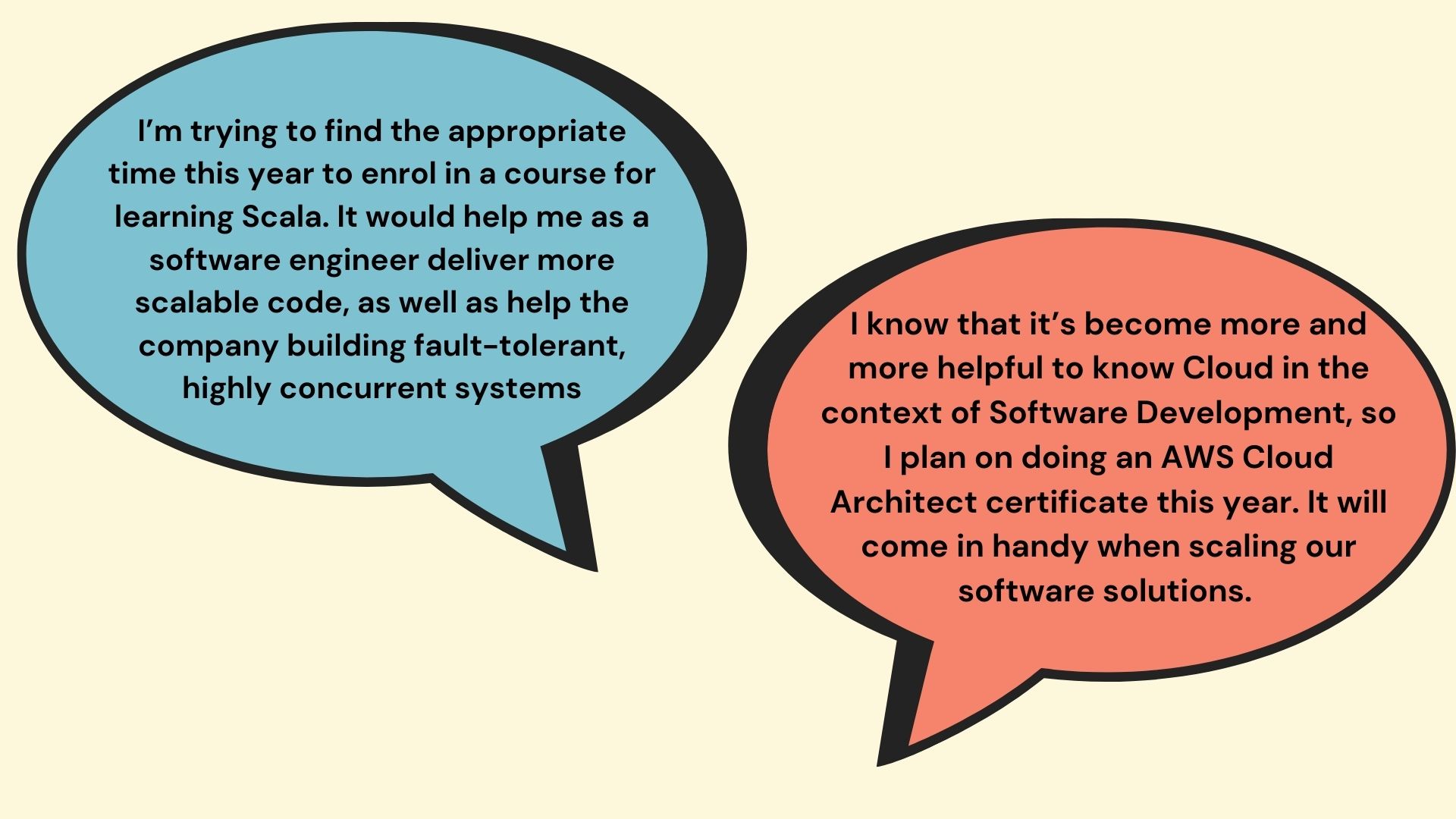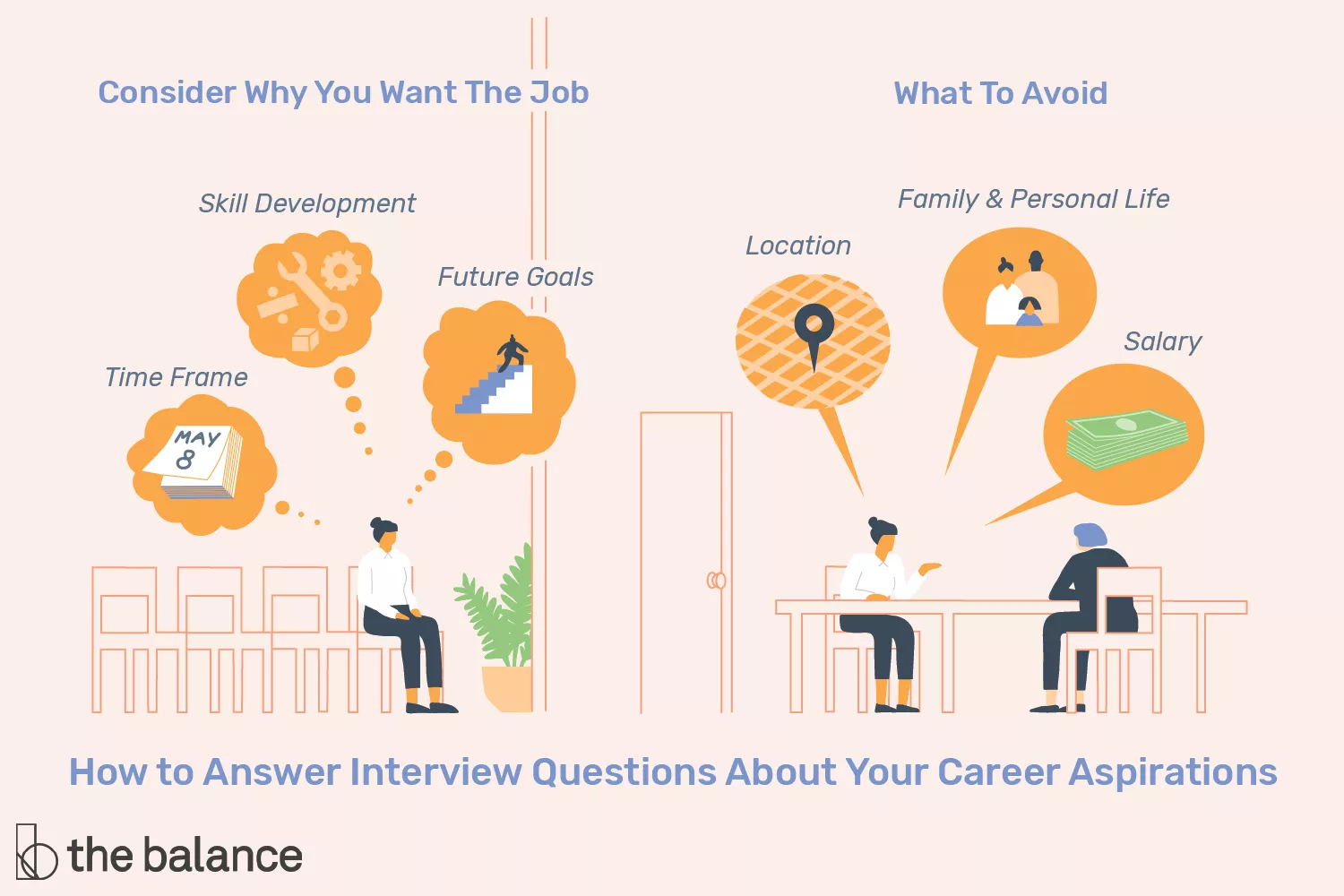
Importance of Career Goals to Software Engineers and their Employers
Posted on:
by Cathal McAliskey
IT Jobs and Recruitment Insights
When speaking to Software Engineers, as an employer, it is important to understand the person behind the tech stack. You should place similar importance on their motivations/ambitions as with their technical capabilities.
Career goals are important for Software Engineers as they will keep you focused and keep you improving. Goals are targets to aim for, steps to follow with opportunities for progression.
Let’s look at career goals, the different types, some examples, common mistakes and why employers should be interested in hearing about an individual’s career aspirations.
What is a career goal?
-
Career goals are the things you want to achieve in your professional life.
-
These are the targets you set yourself and can be short-term or long-term.
-
A short-term goal could be completing a relevant development or cloud certification.
-
A long-term goal could be running your own Dev team as the Director of Engineering or CTO.
4 types of career goals

Career goals give an employer an insight into roughly how long the Software Engineer could work for them and it helps identify what motivates them to work.
For example: If your goal is to set up your own software company in the next 2 years, companies may see this as a red flag as you don’t have a long-term future there. They will also have to consider the expense of hiring and training a new employee.
Companies ideally want long-term employees who want to learn and grow. By asking about career goals and aspirations it will give them a sense of their plans and the Engineer’s plans alignment.
When asking about motivations, a company can get a good picture of the ideal path the Engineer wants to go down and whether or not a position in this company would be high on their priority list. It is important to spot red flags early rather than wasting time on people who aren’t fully interested.
When an Engineer explains their goals, the company will be able to see their level of ambition. This will help the company judge if they would be a good cultural fit with the existing Engineers in the team. If someone is less ambitious than everyone in their team they may get left behind.
An alternative question companies could ask could be “Explain where you see yourself in 3/5/10 years?” Here they can evaluate what progression the Engineer is expecting, and if your company can meet these expectations.
What do companies look for in a good answer?

-
Companies want to see Engineers with goals that are realistic. They want to see goals that are relevant to the company.
For example, an Engineer’s goal could be to get a Scrum Master certification and move away from programming. This is an interesting goal but isn’t going to be helpful if they are applying for a Software Engineer position. -
It’s important for Engineers to be ambitious but their goals must be realistic. An Engineer can’t expect to be managing a team in a few years when the other Engineering managers have 10+ years’ experience.
-
Short-term then long-term goals. In most cases your short-term goals are steps towards achieving a long-term goal, so start with them. Good answers will be logical and explain which short term goals can help you achieve a long-term goal.
-
Focus on 2 main long-term goals, how you plan to achieve them and how they will benefit your career and the company.
-
Have an action plan for your goals. Every Engineer can have amazing goals, but companies are more interested in the Engineers who have a serious plan in place to achieve these goals. Rome wasn’t built overnight.
If your goal is to learn Scala, explain how you will achieve that, what course or certification you are going to pursue, how will this improve your work performance, how will this benefit the company. -
Focus on how your goal will benefit the company. If they see that your goals could aid them and their teams they are going to be more excited to get you onboard.
-
Practice, Practice, Practice. Even if you’ve got your future fully planned out it’s important to plan for this question in advance. Demonstrating confidence when explaining these goals looks good in the company’s eyes.
Common Mistakes

(Soruce: Balance Careers)
-
Some people don’t plan for this question and say they don’t have any goals. As mentioned above, having goals is very important.
-
A lot of Engineers are motivated by money and that’s fine, it motivates many people. But companies don’t want to hear goals around earning more. Instead of having a salary or benefits goal it’s better to have a goal to get you to a position where you could earn you that salary.
For example: You could say “ My goal is to become a Software Development Manager in the next 5 years” rather than “I want to be earning €100,000+ Manager in the next 5 years” -
Not being relevant to the company. If your goals are not aligned and in the best interests of the company you want to work for, then they won’t be interested. Explain relevant goals that could benefit the company.
-
Don’t set unrealistic goals. A new grad isn’t going to become a CTO in a few years. Unrealistic goals can come across as arrogant from the company’s perspective and it won’t help your chances.
It’s key to remember that having career goals and an action plan is vital as a Software Engineer. When answering questions about your career goals remember to:
-
Provide relevant goals that align with the company
-
Explain the steps to achieve your long-term goals. Short-term then long-term.
-
Plan accordingly and be confident in what you want to achieve
-
Avoid financial or unrealistic goals
If you would like more information on Software Engineer Career Goals or would like help in planning for these types of interview questions, reach out at cathal.mcaliskey@gempool.ie. Or check out our careers page for a position that aligns with your goals.
If your company would like some recruitment assistance, check out our services page.
A goal without a plan is only a dream.





